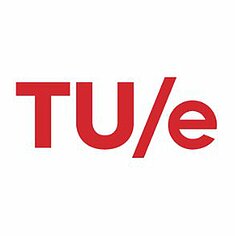From lab to humans: Dan Jing Wu wants to help women with breast cancer with her startup VivArt-X

TU/e spin-off VivArt-X has raised nearly one and a half million euros for the development of its biomaterial with the express desire to help women after breast-conserving surgery.
Remember this name: Dan Jing Wu. Pronounced with her own Eindhoven accent as Dan Zjing Woe. We are going to hear a lot from this enterprising doctor of biomedical engineering. The CEO of TU/e spin-off VivArt-X has great ambitions to make a real impact in society with her research. The road ahead is long, and strewn with potholes and bumps, but Dan Jing is confident that with VivArt-X she will help women with breast cancer. We ‘traveled’ with Dan Jing Wu for just under a year on her path from science to human application.
When postdoc Dan Jing Wu and professor Patricia Dankers made plans in 2021 to turn their scientific knowledge about regenerating the body’s own tissue into a business, she had no idea what was about to come her way. All she knew was that she wanted to bring her biomedical research to society, and to do something tangible with it to help people.
A doctor is what Wu wanted to be as a child. Or an entrepreneur. Or something in the sciences anyway. After some hesitation this Eindhoven native eventually chose TU/e. “I was good at engineering in high school. Tinkering and fiddling, doing calculations with levers, I liked that.”
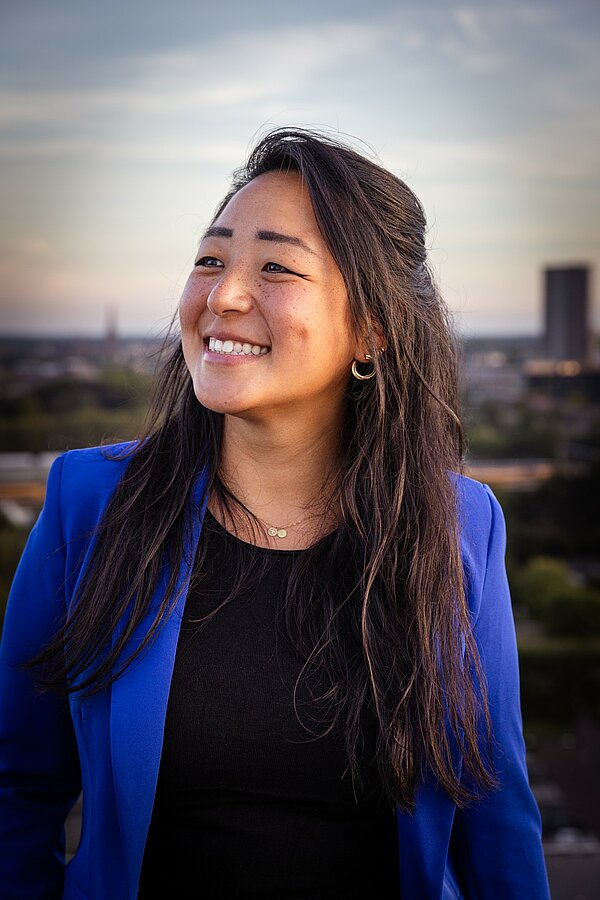
Childhood dream
At the Department of Biomedical Engineering at TU/e, she found everything to set her pulse beating faster: researching medical innovations that can help patients and make an impact. And the opportunity to be an entrepreneur. “Since my childhood, I have dreamed of helping patients with my inventions. Now, that is what I call impact from your research. And I’m going to make that happen!”
Grandmother with kidney disease
“My grandmother always encouraged me to pursue medical studies. She became ill and passed away when I started the bachelor’s degree in Biomedical Engineering. She had kidney disease and had to be on dialysis for years. I was angry at the world: why can we send a rocket to the moon, but not figure out how to cure my grandmother?”
“When I met Patricia Dankers in my undergraduate phase, she was working on regenerating an artificial kidney with the body’s own tissue. Her research proved to be very attractive to me. I immediately knew ‘she’s the one with whom I want to work and graduate’.”
This is exactly what happened, and Wu followed it with a PhD program. “I was allowed to conceive and design my own research. I wanted to do something with biomaterials, chemistry, 3D printing, and tissue generation.”
From fan to mentors
The icing on the cake for Wu was getting both Dankers and Carlijn Bouten as mentors. “My two great female role models! I had been a fan of both of them since my bachelor phase.” After the PhD, a postdoc in Patricia Dankers’ group followed. And now Dankers and Wu have joined forces in their startup VivArt-X.
"I thought after my master’s I would deliver a product that helps people. I soon found out that it doesn’t work that way in academia."
Dan Jing Wu
“I thought at the beginning of my studies in Biomedical Engineering that in my master’s I would be able to deliver a product that helps people.” She now laughs at the naiveté and ambition of her younger self. “I soon found out that academia doesn’t work like that. You research things and write papers on them, but don’t develop a product that gets to patients.”
And that’s the nub of the problem for Dan Jing. “It’s a real shame, isn’t it, that all this cool research done at TU/e and other universities fails to get to society? At least I thought so. That’s why it’s so great that I now have the opportunity to do something about it.”
November 2022 - Running on a leash
Half the circus passes by in conversation with Dan Jing Wu. She is SO driven and impatient and wants to move forward with VivArt-X, preferably yesterday. Practice is often more uncontrollable, and sometimes makes her a little rebellious. “I feel like a puppy who only wants one thing: to run, run, run. But I’m stuck on a leash that’s holding me back.”
“I’m a fixer, a doer.” This was evident when she and a childhood friend started the bag line Noya Noir during her PhD period at TU/e. “I found it terrifying, because we put all our savings into it and had no idea whether it would succeed. But we wanted to do it, and learned an enormous amount from it. For me, the nice thing about entrepreneurship, in comparison to doing scientific research, is the speed.”
With startup Vivart-X, her drive to keep that speed up will be sorely tested. The experience of setting up and running a successful bag line does not compare to setting up VivArt-X.
“With Noya Noir, I was the investor myself, and helped determine the path we took. Now, we are dealing with shareholders who put money into our idea and who also have their desires.”
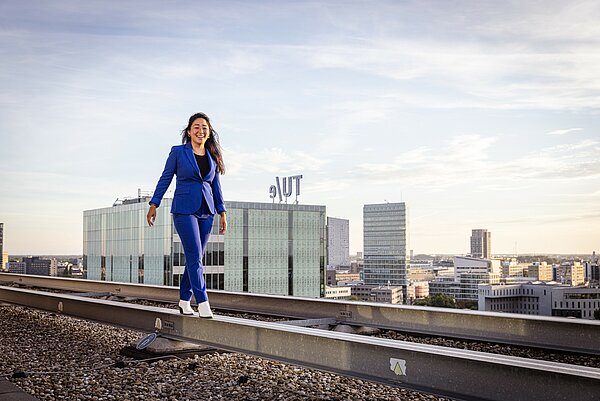
Money money money
Money. This simple little word is the burning centerpiece in Wu’s ambition to improve aftercare for women with breast cancer. That's because you can have a fantastic, scientifically validated idea that you want to bring to market to help as many people as possible. But it’s not that simple.
“I thought after my PhD, ‘I can start a company from scratch, and I can do research. How hard can it be to set up a startup in medical technology?’” That now causes her to laugh out loud.
Leaving the nest
“There is so much more to it: developing a business plan, finding investors, writing grants, making strategic plans, finding partners for collaborations within consortia, and reading up on laws and regulations.” And everywhere that five-letter word reappears as a prerequisite to making everything happen.
“As soon as we get funding, I will leave the TU/e nest and I can give myself a small salary. In addition, we need scientists who will work on the product. That will soon amount to a few hundred thousand euros for salaries, disability insurance, and all the costs associated with having employees. But you also have to think about renting laboratories, the cost of materials, and the approval process for applying our product in the human body. That is a costly, intensive, and lengthy process. And we’re only talking in thousands.”
Wu is happy with the support that they have received from the Brainport region. For example, very early on, she got noticed by the Brabant Development Corporation (BOM). “A very good experienced venture builder, Stephan Hulsbergen works there, and he helped me so much. He immediately believed in our idea for VivArt-X and is always there for me when I have questions or doubts.”
“The BOM currently supports seven companies all working on the topic of breast cancer. One does something with diagnostics, and another with surgery. And we are working on regenerative medicine.”
“They give me advice where needed, and help me find investors. They match the amount we manage to bring in. We have come this far in part thanks to BOM. You can’t do it on your own, you just need that extra push, and that’s what they give us.”
March 2023 - Everything comes at once
During the celebration for International Women’s Day at TU/e, Dan Jing tells a room filled with women about VivArt-X and her ambitions. She smoothly takes her audience through her research on tissue regeneration, and how she wants to use it to help women after breast cancer.
“How long will it be before this can actually be applied?” comes the question from the audience. “It will definitely be another ten years or so before our invention can really start helping women. And I’m talking about the best case scenario where we can work hard towards our goal with a large team and enough investors.”
Volumes of thousands of pages
Such a long period does not deter her. “It’s not so simple as first doing a test in vitro, and then testing it on humans the day after. If you want to bring a product to market that will be used in humans, a lot of research is needed. That has to be done safely, properly, and ethically. When you sterilize a device, it can change something. Does something cause irritation or infection? You have to study it all and be able to rule everything out.”
“We still have so much to research and document. That will result in volumes of thousands of pages to show that we have conducted our investigations through the proper standards.”
Meanwhile, she welcomes small successes, such as founding VivArt-X, or securing funding. “I break everything down into chunks, otherwise you can’t last the distance. First I want to expand the team. Then I work toward the proof of concept - proving that our idea works. Then we’re one or two years down the line.”
The money also comes in bit by bit. “I hustle and scrounge up money everywhere, but it also flies out again. I can raise a thousand euros somewhere, but that’s already gone after a three-hour conversation with my IP lawyer. Not to mention applying for a patent.”
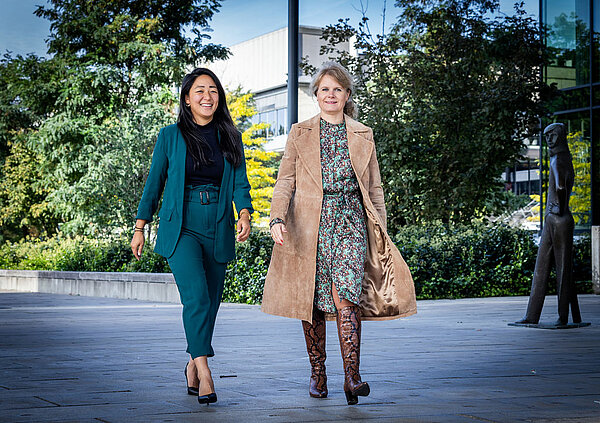
Collaborating with TU/e
The first bulk of the money she gets from the investment application is to hire staff and conduct all the preclinical studies.
“The end of May is the deadline for a large European grant to which I will apply, along with a consortium including my old Department of Biomedical Engineering and the Smart BioMaterial Consortium. We do the product development, they provide the facilities, accelerated development and quality control.” This application is worth 1.4 million euros.
Indispensable: mentors
With all the new things she encounters, Wu benefits tremendously from her mentors. “Being able to learn from people with so much experience and a huge network is of huge value to me.”
Wu’s list of mentors has now expanded from BME professors Patricia Dankers and Carlijn Bouten to include e/MTIC director Carmen van Vilsteren, Katja Pahnke, and professor and serial tech entrepreneur Maarten Steinbuch.
Don’t stray
“Carmen supports women entrepreneurs and is in the healthcare corner as director of e/MTIC and chair of TopTeam Top Sector Life Science and Health in the Netherlands. She has a valuable network for me. With Katja I spar a lot about leadership because of her vast experiences. For example, she was named FRITS top woman of the year. Maarten has set up so many companies, also together with the university, I have benefited a lot from talking to him. For example, he gives me tips on how to arrange everything properly around incorporation and personnel. And he also makes sure I don’t stray from the path.”
"I don’t know if my mentors realize how much they mean to me. A small moment of contact can get me back in the right frame of mind."
Dan Jing Wu
May 2023 - Pride from your own community
Entrepreneurship is in Wu’s blood. “I come from a family of entrepreneurs. My parents own several catering businesses. My grandfather used to say to me ‘You can’t say something can’t be done if you haven’t tried it.’”
She unmistakably inherited her irrepressible energy and drive for entrepreneurship from them. Studying, pursuing a PhD, and living a life in the service of science is something she got from herself. “I do talk to my parents about what I do, but the content is a bit beyond them. What I learned mainly from them is that you should always think in terms of possibilities. At TU/e, I learned how to solve problems as an engineer.”
After being named one of the 50 “Talents under 35” by the Dutch newspaper Het Financieele Dagblad, Wu was also named winner of the InnovAsian Award 2023 in May. She ticked all the boxes: woman, Asian, smart, articulate, and working on an innovative idea. “My parents first read about their daughter in the media in their own language after winning this award. Only then did I notice their pride in what I have already accomplished.”
Wu's parents are from China. "I feel Dutch, but people don’t always see me that way. It’s sometimes a struggle to grow up between two cultures; you don’t really belong anywhere. In the Netherlands, people see me as Asian, and in China, they see at a glance that I am foreign.”
September 2023 - Harvesting in the fall
VivArt-X has now doubled to four employees. Pre-clinical researcher Annika Vrehen and Muhabbat Komil, who specializes in polymer chemistry, have joined the team. “They started with literature research, and they will then go into the lab. I spent a long time working on the plan of how we will approach the research.”
First-timer
“I am extremely proud of Annika and Muhabbat. They make a valuable contribution. We really do this as a team, and with a common goal. I hope I can keep them motivated - and that they like me. I told them honestly that this is my first time in charge and that we have to help each other. I am eager to learn. That’s how you go from being a researcher to suddenly becoming a manager. And you have to know everything about HR, finance, insurance, and marcom (marketing communications). And, I’m also a coffee lady,” Wu jokes.
Prices and awards
It seems like all eyes are suddenly on Wu and VivArt-X. Almost everything she touches seems to succeed. “We applied for eight grants and got them all awarded,” she says happily.
There were also plenty of awards and nominations: in August, VivArt-X was named one of the ten most promising startups in the Brainport region. For this they received the Gerard and Anton Award.
In September, they won the European Innovation Award from the European Supplier Diversity Projects. VivArt-X finished in the top-3 of the most promising Brabant startups at the Brabant40 Award, from BOM, Braventure, and The Gate. Wu managed to haul in a total of 12,500 euros in award money.
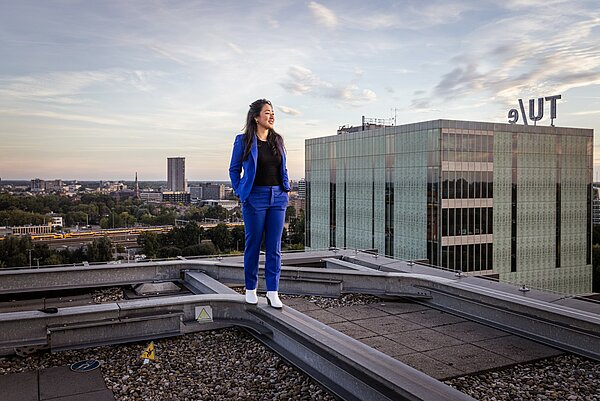
“When I look back at myself a year ago, I do see that I have grown tremendously. I learned a lot, was able to expand my network enormously in the Brainport region, as well as in the life sciences and healthcare sector. I know which programs you can participate in, who the investors are. I’ve learned that the world depends on networking.”
The secret
In turn, she is now trying to help others. “I also like to share my knowledge and network, and I’m doing that now for a few young startups. They sometimes ask what my secret is. I don’t know that either. Just get to grips with everything, and do it - don’t hesitate too long.”
The trade mission Wu was able to join to the United States in June greatly expanded her network in life sciences and healthcare. “Together with other entrepreneurs from startups in my field, I got to take a look at how the biotech and medtech world works in America. We got to look around big companies.”
“It was such an inspiring trip. I do talk to people in our field in the Netherlands at conferences, but now you sometimes sit next to each other on the bus for hours. That’s how ideas for future partnerships are easily generated.”
November 2023 - The inward focus
November is the month of big hits: VivArt-X closes the first round of funding with 660,000 euros. And Wu is awarded the large European Stimulus Grant of 1.4 million euros that she submitted before the vacations with the aforementioned consortium.
“By the way, that doesn’t mean we will get 1.4 million cash,” Wu points out. “Fifty percent of the cost will be borne by the cooperating partners. 35 percent comes from the European grant program OPZuid. The province of North Brabant is signing up for the remaining 15 percent.”
Two years ahead
Together with the award money, previously secured grants, and the money from the first round of investment, Wu has a financial buffer to move forward with VivArt-X for two years.
“That’s such a nice feeling. After being outwardly focused all this time with events, pitches, grant writing, and conversations with investors, I can now turn the focus inward. We are busy further developing the technology to be able to help women in the future.”
